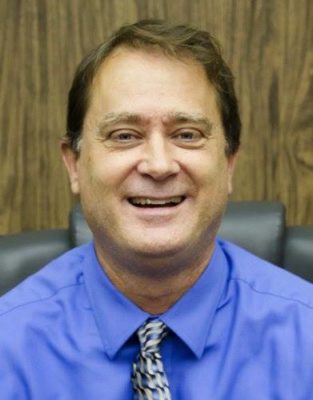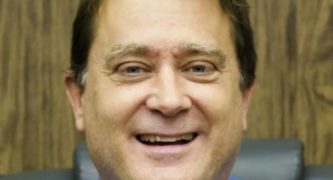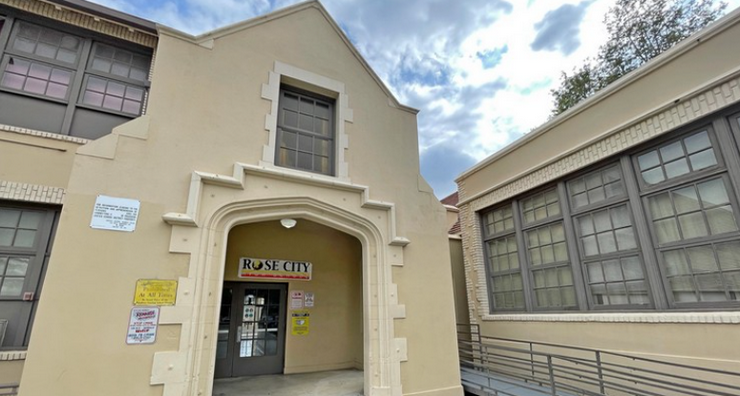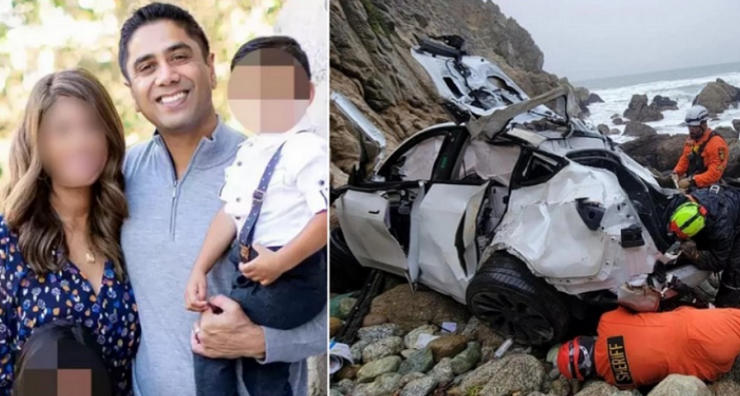
The Board of Trustees of the Pasadena USD voted unanimously on June 26, 2014 to appoint Dr. Brian McDonald as the district’s interim superintendent. He had served as the chief academic officer for PUSD for the previous three years. The board then removed the interim part of that title on November 20, 2014. So Dr. McDonald has been at the helm of the district for almost six years. This is quite an achievement in a district that had seen the previous superintendents have tenures of 5, 4 and 3 years. So Dr. McDonald is now the longest serving PUSD superintendent since Dr. Vera Vignes’s eight-year tenure ended in 2000.
Dr. McDonald is clearly a survivor who has been able to navigate the difficult politics of Pasadena. He has survived the push-back of the community when he has made tough personnel decisions. He has survived the classified staff’s vote and board approval of that vote to terminate PUSD’s personnel commission. He has survived the teachers’ union’s attempt to drive him out via a no-confidence vote. He has survived the renewal/extension of his contract, twice. His collaborative approach to the fiscal crisis two years ago—forming a staff budget advisory committee to make recommendations—meant that he survived the layoffs of staff that were required by that crisis (and thank you Mayor Tornek and voters for Measures I and J!). He allowed a committee of stakeholders to take the lead on making school closure recommendations to the board in 2018 before his executive team made theirs. During a similar process in 2019 he waited for a board committee to put forward their choices before his team made theirs. Thus he survived the closing of five schools during his tenure, the most of any superintendent during this period of declining enrollment that began about the year 2000 and which has resulted in the closing of eleven, or roughly a third, or the schools that existed when closures began. He survived most of the tough board decisions in this list with 4-3 board votes. He also survived prostate cancer treatment during 2019.
During his tenure, it is clear that his calm and friendly nature has attracted people to the PUSD executive team who want to work for that kind of leader. He has supported his team leaders’ initiatives in their various domains, from the large expenditures for Chromebooks for all students—which we are very thankful for now!—and bandwidth improvements, to the transition to an Integrated Math curriculum in the secondary grades and the founding of new programs such as the Math Academy sequence of courses at various schools, to the French Dual Language Program and arts programs at Altadena Arts Magnet, the Early College Magnet and PCC satellite at John Muir High—-which he and the PCC president pushed through—-and soon the Armenian Dual Language Program at Blair, to the Measure TT modernization projects completed at several school sites and the leasing of other sites to other entities and now a long-term solar installation project and power purchase agreement at twelve sites. He has promoted and hired talented staff and let them lead their departments, sometimes even when he doesn’t support their point of view on an issue and feels the board may not support it either. The payoff for his support for his leadership team and their respective central office department staffs is the great teamwork they illustrated in the recent transition to remote operations during the pandemic. PUSD is acknowledged to have made the switch to remote online instruction more quickly and effectively than many other districts around the region, thanks to long hours put in by its Curriculum and Instruction and Technology teams, and of course its Food Services department and PUSD’s community partners, led by the Pasadena Educational Foundation and the City of Pasadena, have continued to provide meals for thousands of PUSD families every day.
From reflection on the thousands of superintendencies around the state and nation, the common wisdom is that it takes about six years to begin to make a real impact on a district. Dr. McDonald thinks the key to that will be stabilizing the enrollment of the district. He also thinks that raising expectations will help with that goal. He knows from his own experience as a principal of tough schools that higher expectations are critical. Further, while he was chief academic officer for PUSD from 2011 to 2014, he brought in an expert to conduct a study of why some students were not performing as well as others. Prior to the study, the consultant interviewed 388 PUSD students. What they said confirmed what he knew: “ . . . students expressed the importance of having teachers who held high expectations for students.” “. . . students perceived that some teachers held high expectations for them to be successful students.” “. . . students indicated that it is important to have teachers who believe in them. The reason is that when they have supportive teachers, they are more likely to have the confidence and motivation to achieve success in school. In addition, these students are more likely to feel good about themselves. On the other hand, the students reported that when they have teachers who do not believe in them, they are less likely to want to perform in these classes.” (Hines, 2013) As a result of his deep understanding of this critical need, he had to make tough personnel recommendations to remove staff that he felt did not have high enough expectations for all students. Sometimes this caused the community of a school and supporters of a school leader to protest. He was shielded somewhat from the political fallout for such decisions as he was not the superintendent, but I believe he was brought here by his predecessor because of this ability to demonstrate leadership even in the face of community opposition.
What private and charter school families want
Many Pasadena families have the following perceptions: The levels of academic and behavioral expectations for students in PUSD are not high enough, the PUSD as an agency is not doing enough and by itself cannot do enough for its majority of lower income students and families to have higher outcomes. It follows that many families place their children in smaller, more private settings where expectations are higher. Evidence for this was contained in the summary of the results of a survey conducted for PUSD in 2016:
“Former parents express strong concerns about academics, from boredom and lack of rigor to their children’s “slipping through the cracks,” and not finding a teacher or academic program that was right for their children.
A second strong factor that led parents to find alternatives to the PUSD or to remove their children from PUSD schools was concern about the safety of their children and the behavior of other students at PUSD schools. This is especially the case among minority and lower-income parents. Addressing student behavior and discipline issues will be at the heart of efforts to retain and attract parents to the PUSD. Without a sense of confidence that children will be in a safe and effective learning environment, many parents, and especially those whose children are most directly affected by an unsafe school, will lack confidence in the District’s commitment to retaining them.
A third evident concern voiced by parents was a perception that class sizes are too big in the PUSD, and a fourth theme we saw across the surveys was a sense expressed by parents that the District was not being responsive to them. Further, parents who are least likely to return to the District were more likely to mention problems with specific teachers and other staff.
In contrast, parents at charters and private schools value the higher academic standards, safe campuses, and responsiveness of school staff to their concerns. In other words, what many former parents found lacking at the PUSD is precisely what private and charter school parents find in abundance.
The surveys were consistent in what changes the District could make that current parents would find most important in deciding whether to stay in the PUSD, and that former parents would find most important in deciding whether to return.
Parents found the most appealing of these potential changes to be high-achieving, college-prep academies, with smaller class sizes, enrichment, and a focus on readiness for higher education. Interest in this opportunity does not vary significantly by income or race/ethnicity.
A second change of extremely high importance to parents considering the PUSD would be a real and visible effort to address bullying and student discipline issues and to address the emotional and social concerns of students. These concerns were addressed by parents regardless of race/ethnicity or socioeconomic status.
Finally, parents want to know that their teachers and principals, and the District as a whole, will listen, respond, and be held accountable to concerns about safety and academics and about the needs of their children.”
Longtime efforts to help the neediest families and students
Local nonprofits appeal to some of these wealthier Pasadena private-school attending folks —-including some who are city and PUSD policy makers—and to PUSD families for donations to help the nonprofits provide services for students and families in need. They also appeal to PUSD and the city of Pasadena for contracts to provide these services. Donors give money to the nonprofits, and PUSD and the city of Pasadena contract with them to help these students and families.
Of course PUSD has for many years supported the students and families considered most in need via new programs, resources and staffing. Schools in the NW of Pasadena have received higher amounts of resources per pupil than most other schools for as long as anyone can remember, since the significant federal funding of schools (Title I) is to support lower income students and families. In addition, for at least the last three PUSD superintencies, millions of dollars in extra resources for special programs and efforts have been devoted to reinventing schools and establishing new programs and modernizing facilities at NW schools, because most superintendents want to make a difference. But if PUSD attempts to raise academic or behavioral expectations districtwide for students and by extension that of the families of students—primary reasons that families choose not to enroll in or to leave PUSD, per the above survey results—the same generally liberal Pasadena policy makers, donors and nonprofits resist such raised expectations. They almost universally advocate for more resources for the nonprofits and more supportive services for students and families in need but do not advocate for higher academic and behavioral expectations. They do promote the idea that greater accountability over the employees of PUSD—-which is mentioned in the above survey results but not as prominently as the other reasons—-is also needed, when of course in order for increased expectations for any part of the system to be effective, expectations for all in the system would have to increase.
The challenge to stop the negative feedback loop
These beliefs preserve the status quo and lead us back to the original perceptions. Hence we have a negative feedback loop, in that any attempt to change the system by raising expectations causes the system of policy makers, donors and nonprofits to respond in a way that drives the system back towards its original condition. Of course this condition of schools, families and students solely needing more resources and not also higher academic and behavioral expectations benefits the nonprofits and private schools, as the former sector inevitably receives more money and the latter sector continues to receive more than enough students and wealthy families seeking higher expectations. In very real ways, preventing higher expectations is good business for these sectors, but it is bad for PUSD because above all else, PUSD needs to stabilize and grow its enrollment.
While the challenge of trying to introduce higher expectations for all participants in the system is difficult, I believe it is one we must pursue if we are to succeed in stabilizing and growing PUSD’s enrollment. One of my colleagues on the board several years ago said “Higher expectations (of staff performance) don’t cost anything.” Two former colleagues quickly disagreed and said yes they do. The issue has been around for a long time, but unfortunately at the school board/policy-making/giving direction level any discussions about raising expectations are only about higher expectations for PUSD employees. If we are to stabilize our enrollment and someday increase it, we will need to have higher academic and behavioral expectations for students and families too. I hope that with all of the many resource challenges that we will face in trying to restore in-person classes later this year, we allocate those scarce resources only with clearly understood higher expectations for all elements of the system.
A myriad of challenges awaits in PUSD that could benefit from higher expectations. It remains to be seen whether Dr. McDonald can survive the push-back from many circles that will come from these attempts. Powerful self-interests in the community of PUSD described above will resist. In addition, he will continue to have to contend with powerful forces that are always attempting to assert more control without any commensurate expertise or experience in education, a Dunning-Kruger effect that PUSD has to continually endure, of those who don’t know what they don’t know insisting on their way. It takes the form of thinking they can manage the district better than he and his executive team can, that they know better than every level of employee, when in reality they don’t know. This problem doesn’t go away because staff rarely if ever correct board members or parents, because they know that the criticism of parents and board members can push them out of their jobs. He will have to continue to push through the negative and very time-consuming effect of this on the road ahead.
Assuming Dr. McDonald survives the ever-present biggest determiner of tenure, which are the results of the next elections of the board of education, he will be poised to lead the district to higher expectations which if implemented could attract more families and stabilize the enrollment of the district. I for one hope he does survive and is able to raise expectations so that PUSD can stabilize and grow.














 0 comments
0 comments


